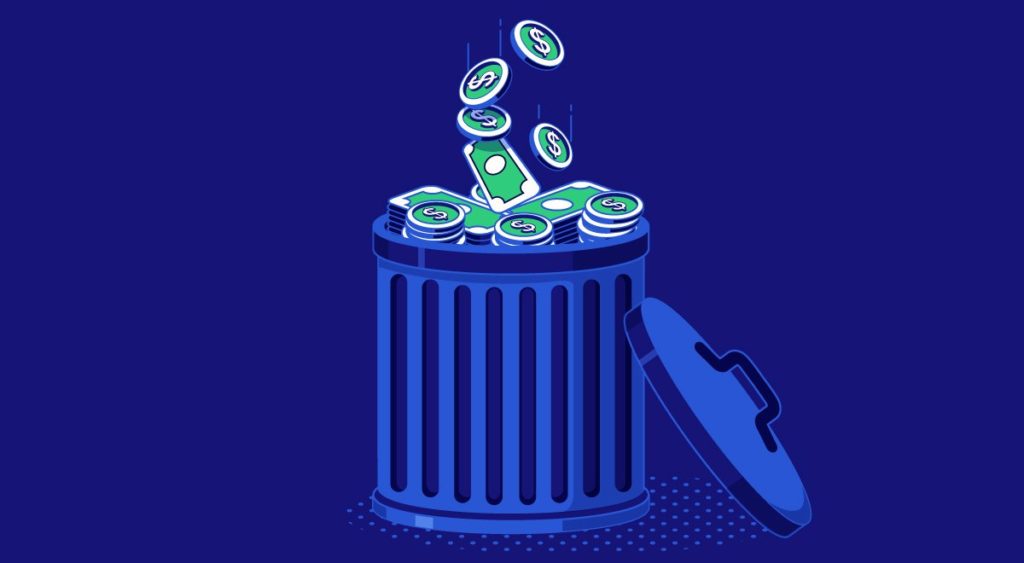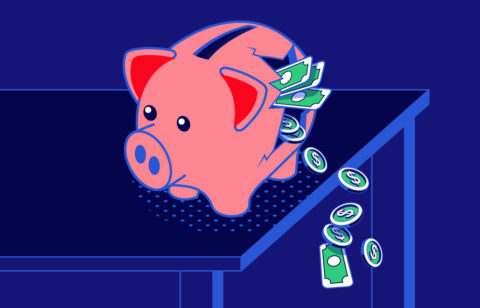No one wants to admit that they have bad habits, but everyone has them. Bad habits can be detrimental to your health, to your finances, or can impact your mental wellbeing. Success in quitting any bad habit hinges on replacing it with good habits. The people who quit smoking are often the ones who replace it with better habits, such as exercise or healthy snacks. If your bad habits lie in how you handle your finances, then replacing your bad money habits with good ones will have a positive impact on your life by reducing stress and giving you better financial footing. Check out some bad habits and learn how to replace them with good ones.
1. Not Putting Money in an Emergency Fund
According to MarketWatch, 38% of Americans couldn’t handle a $500 emergency without borrowing the money. If 2020 has taught anything, it’s the importance of being prepared for the worst; however, even a small emergency such as an unexpected auto repair shouldn’t derail your finances entirely. A general rule of thumb is to have at least 3 months’ worth of expenses that includes all your bills, rent or mortgage, food costs, and other regular expenses, saved in a separate account.
Replacement Idea: Create an Emergency Fund of at least $1,000
It can seem like a daunting amount, but if you have to start small, do so and give what you can. It all adds up. Rome wasn’t built in a day, as they say. Set up your emergency fund in an account separate from your regular checking and savings accounts and have an automatic deposit made into it from each paycheck. Even if it’s only $20 a week; by the end of a year, you’ll have over $1,000 in it.
Look for expenses that can be cut that will allow you to put more away. Anytime you get any type of financial windfall, such as a bonus, tax refund, or raise, deposit the extra money in your emergency fund. If you don’t have money to start funding it, consider getting a side job and having the entire paycheck put into an emergency fund. Every little bit helps, and once you have enough money saved, you can break the bad money habit and you won’t have to rely upon credit cards if you’re faced with an emergency expense. Remember, if you use money in your emergency fund for an emergency, you’ll have to replace what you spent.
2. Overusing Credit Cards
Credit cards are the ultimate mix of convenience and usefulness all contained in a little slice of plastic. You don’t have to worry about having enough cash on hand or worry about whether your paycheck was deposited into your account, as is the case with your debit card. The thought of using a credit card wherever you go and paying it off at the end of your billing cycle is appealing; all your discretionary spending will be in one monthly bill! However, rarely do people pay it in full each month; in fact, 59% of Americans carry a balance on at least one credit card. Without enough savings or an emergency fund for backup, many people find themselves using credit cards to pay for their bills and groceries.
If used responsibly and balances are paid monthly, credit cards do have benefits. Rewards programs and frequent flyer miles can help you earn and save money, and if you have a big purchase and you have a 0% interest offer or a low-interest card, then you can save money by putting it on a card instead of taking out a loan. If you travel for business, putting your expenses on a credit card can be a useful way to keep your work and home finances separate.
Replacement Idea: Work to Eliminate Credit Card Debt
Vow to not use your cards and leave them at home. If you have to think before you use them, it’ll decrease the odds that you’ll use them impulsively. Some people have gone so far as to freeze them in a block of ice and keep them in the freezer to change their bad money habits; if your willpower is low, this is a good idea.
Pay more than the minimum monthly payment. Throw any extra money you can at paying down your credit card debt, even if it’s a few dollars here and there. As with your emergency fund, consider getting an extra job and devoting the paycheck to your credit card debt.
3. Not Sticking to Your Budget
Most people have some kind of budget, whether they have it written down, use an app, or just have spending limits in mind when they go to a store. Budgets in any form can be a challenge. Spending money is a lot more fun than saving it, but if you have debt or you’re struggling to pay your bills, you need to budget your money.
Replacement Idea: Create a Reasonable Budget
The biggest mistake that people make when they create a budget is making one that’s too strict. If you eliminate all discretionary spending and don’t leave yourself a little wiggle room for fun and entertainment, you won’t stick to it. If you can create a budget that you can live with, you’ll be more likely to achieve long-term success.
Replacing your bad money habits with good ones will help you put all your financial mistakes in the past and create a more stable financial future. Get started on those good habits today!





